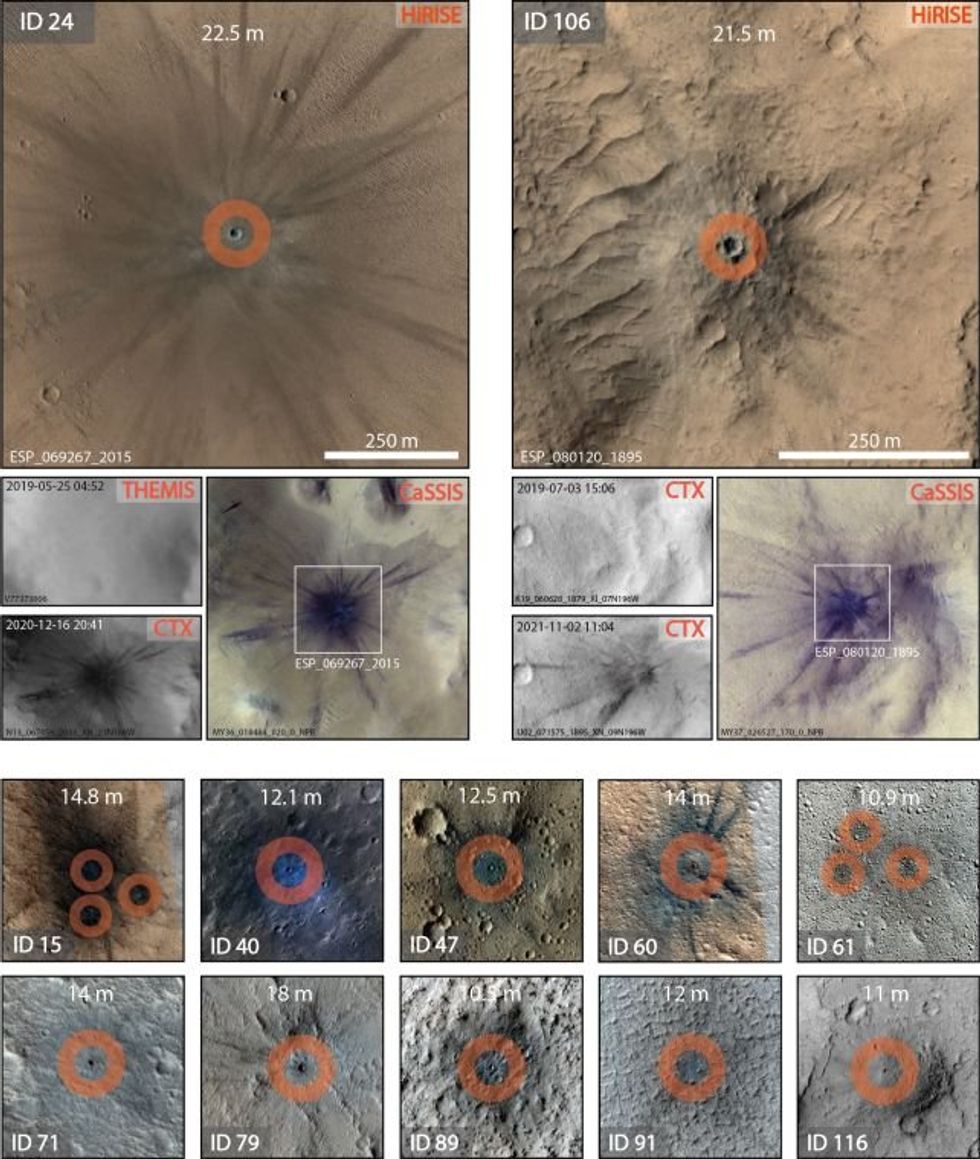Science & Tech
Gregory Robinson
Feb 14, 2025
An Alien Message Was Sent From Mars to Earth
Bright Side - Vertical / VideoElephant
Mars has quakes just like Earth and the origins of these seismic events on the Red Planet have fascinated scientists for years.
While earthquakes are caused by the movement of tectonic plates, Mars doesn’t seem to have this feature. Instead, its crust is like one giant plate, according to NASA.
With the absence of tectonic plates, the marsquakes that shake the planet are believed to be caused by the crust shrinking as the planet cools, creating breaks called faults. Martian tremors may also be caused by meteorite impacts and scientists are learning more about this process.
Now, a new study has suggested that marsquakes don’t always begin under the surface. Using artificial intelligence to analyse seismic data, the study shows how deep and strong the quakes that shake the planet’s interior are.
The Mars InSight lander was sent millions of kilometers to Mars to detect activity beneath the Martian surface. It was stationed on the planet between 2018 and 2022 and detected more than 1,300 rumbles.
Planetary scientist Valentin Bickel from the University of Bern in Switzerland, and his colleagues, used a machine learning algorithm to hunt for impact craters that appeared during InSight’s tenure. Images of the Martian surface collected during observations by the HiRISE instrument on the Mars Reconnaissance Orbiter were examined by the research team.
Bickel et al cross-referenced the 123 new craters found using Insight’s seismic recordings and tried to find matches in space and time. They correlated 49 seismic events to at least one impact event each.
“Our data show that more impacts occur on Mars than were determined in previous studies using orbital images," Bickel said in a press release.
The research shows that a lot more rocks impact Mars than scientists previously thought. The new estimated rate of significant impacts on the planet is 1.6 to 2.5 times higher.

Bickel said: “Our observations show that some of the recorded marsquakes are actually caused by meteoroid impacts and not tectonic activity.
“This has far-reaching implications for estimates of the frequency of marsquakes and our understanding of the dynamics of the Martian surface in general.”
A second research paper focused on one of the impact craters measuring 21.5 meters near Cerberus Fossae, a region known for having a lot of seismic activity. This research team were able to link the crater to a specific, high-frequency marsquake.
“We used to think the energy detected from the vast majority of seismic events was stuck traveling within the Martian crust,” said InSight team member Constantinos Charalambous of Imperial College London. “This finding shows a deeper, faster path — call it a seismic highway — through the mantle, allowing quakes to reach more distant regions of the planet.”
It was also discovered that seismic waves caused by these impacts were able to penetrate deep into and below the mantle rather than just being confined to the planet’s outer layer.
So, meteroid impacts create seismic waves that cause Mars to experience much deeper and stronger shakes than previously thought.
The findings provide further insight into our understanding of Mars’ molten core, and how Earth, Mars and Venus formed. These three worlds all have similarities and are therefore known as “terrestrial”, meaning they are primarily composed of rock and metal, have solid surfaces, and are located within the inner solar system.
Both papers were published in Geophysical Research Letters, and can be read here and here.
You can read more about the incredible discoveries by NASA’s Perseverance rover on Mars which opens up new possibilities to finding evidence of ancient life on the planet.
How to join the indy100's free WhatsApp channel
Sign up to our free indy100 weekly newsletter
Have your say in our news democracy. Click the upvote icon at the top of the page to help raise this article through the indy100 rankings.
Top 100
The Conversation (0)














